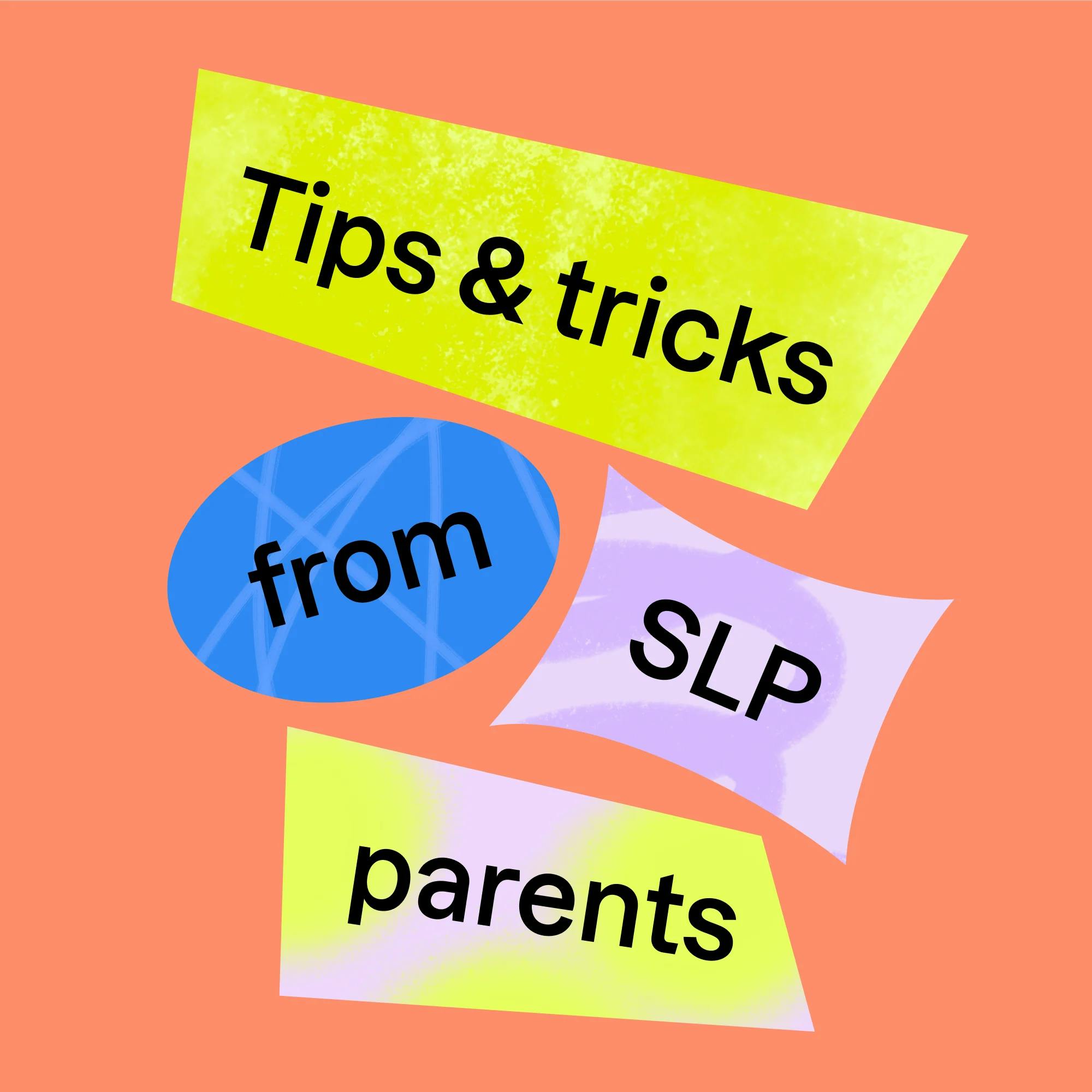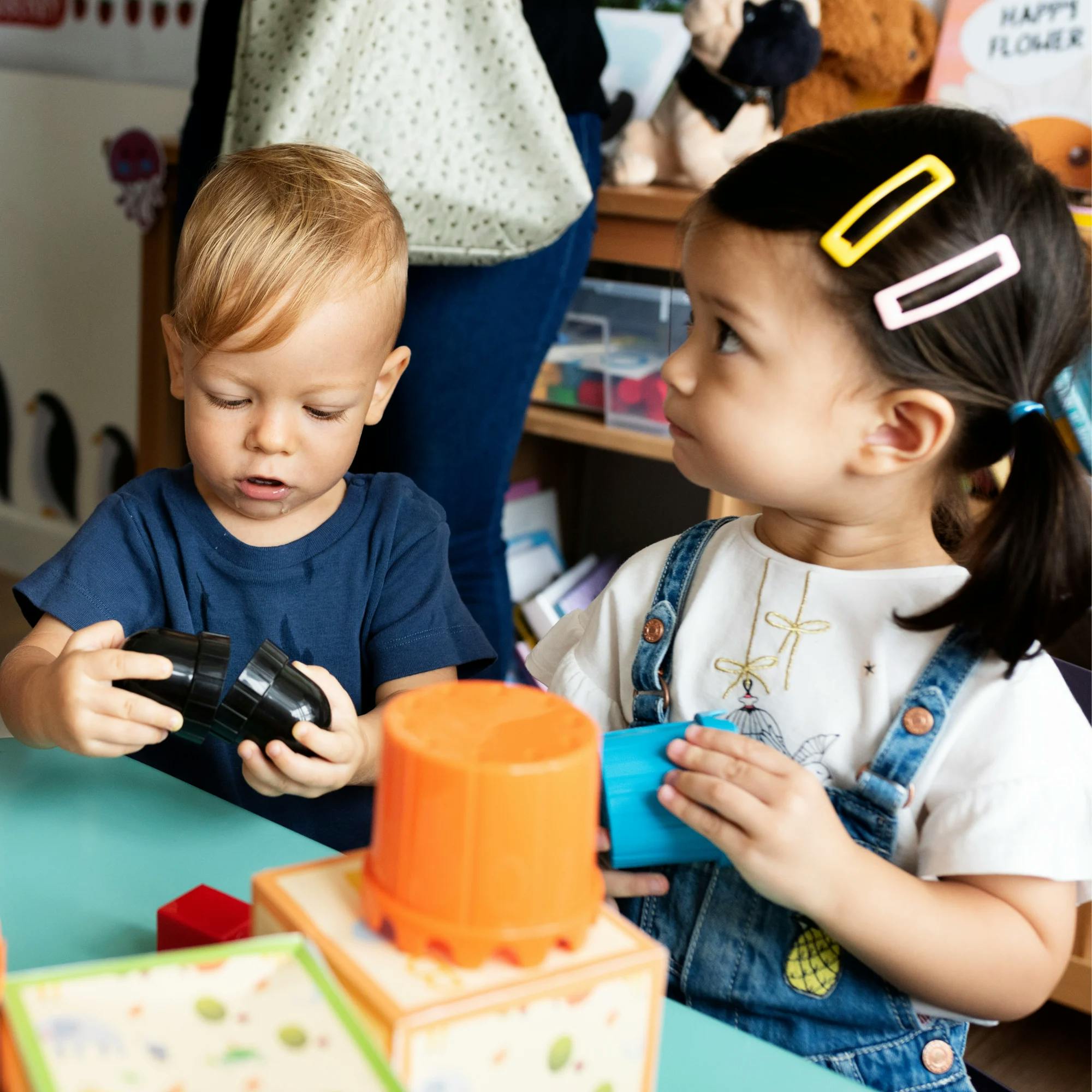Did you know that ear infections can affect a child’s ability to develop communication skills on time? Chronic ear infections can cause a child to have speech or language delays.
You may wonder exactly how these two things are linked. Research from scientists at the University of Florida reveals just how strongly hearing loss from ear infections can relate to developmental delays. Let’s take a look at what the study found, as well as what you can do if your child has had frequent ear infections.
Free speech check
How well is your child speaking for their age? Find out with our free 5-minute online screener. No signup required, just answers.
 Start the screener
Start the screenerStudy looks at the effects of frequent childhood ear infections
Researchers at the University of Florida looked at the effect of chronic ear infections on children’s auditory processing and language abilities. Auditory processing refers to how we understand the sounds we hear. Kids with auditory processing problems have a hard time detecting differences between sounds in words, even though they can physically hear the sounds. For example, they may have trouble understanding what’s said to them when they're in noisy places.
The study included 110 children from ages 5 to 10 years old. Some of the children had a history of chronic ear infections, meaning they’d had six or more ear infections before 3 years of age. The other children had three or fewer ear infections.
Three different tests were used on all the children in the study to assess their language and auditory processing abilities:
For one test, the kids listened to three cartoon characters. They had to tell which cartoon character's speech had a different loudness than the other two.
In the second test, the children had to name pictures of items presented to them. This measured their expressive vocabulary.
In the last test, kids had to identify which words had the same beginning or ending sound as others. This relates to phonological awareness skills.
The study found that the kids with a history of chronic ear infections before age 3 demonstrated the following:
Smaller vocabularies
Difficulty matching words that sound similar
Difficulty picking up on changes in sounds


How do ear infections affect speech and language?
If a child has frequent ear infections, fluid builds up in the ear. This can lead to some hearing loss. Once the fluid goes away, hearing typically returns. However, frequent ear infections can cause kids to have hearing loss for extended periods of time. They can’t clearly hear the words being said to them, leading to delays with speech and language development.
Concerned about your child's speech?
We're here for you. Get matched with a speech therapist who's experienced in your child's area of need and available when you are.
 Find a speech therapist
Find a speech therapistWhat to do if your child has had frequent ear infections
If your child has had frequent ear infections and you notice any difficulty with their communication development, ask your doctor for a referral to an audiologist or ENT (ear, nose, and throat doctor). The audiologist can perform a hearing test to determine if your child is hearing normally or if there is any fluid in the ear.
If fluid is found in the ear, surgical placement of PE tubes may be considered. PE tubes help the ear drain the excess fluid, preventing fluid buildup, infection, and temporary hearing loss. An ENT performs this surgery.
If a professional recommends a hearing evaluation for your child, it’s best to have it done.
Lead study researcher Susan Nittrouer, a professor of Speech, Language, & Hearing Sciences at the University of Florida, explains how ear tubes can help with speech delay: “If ear infections are common and fluid does build up, tubes placed temporarily in the eardrum can help drain the fluid and restore hearing, which should lead to less risk of delay in the development of the central auditory pathways and fewer problems acquiring language.”
Your doctor may also refer you to a speech therapist. If your child has a delay in reaching speech and language milestones, no matter what the cause may be, a speech evaluation can determine if speech therapy is needed.
It’s important to note that If your child has any degree of hearing loss, this should be determined as early as possible in the speech therapy process. It’s common for speech therapists to recommend a hearing test, even simply to rule out hearing loss. Imagine doing speech therapy for months, only to find out that your child is hearing only portions of what’s said to them. If a professional recommends a hearing evaluation for your child, it’s best to have it done. The sooner you can get answers, the better.


How can speech therapy help a child who has had ear infections?
Speech therapy can be a big support for kids who have speech or language delays due to hearing loss from ear infections.
Speech therapy will likely focus on increasing the words that a child can say, or on other types of communication like gestures or augmentative and alternative communication (AAC). Using gestures or AAC does not hinder verbal language development. In fact, it can support it! It gives kids a way to communicate until their hearing is improved.
Depending on the amount of hearing loss and how long it lasted, a child may not pronounce speech sounds correctly.
Speech therapy may also focus on helping kids with speech sound production, or speaking more clearly. Depending on the amount of hearing loss and how long the child was not hearing well, they may not pronounce certain speech sounds correctly. During the evaluation, your speech therapist can determine which sounds should be addressed in speech therapy.
Because the speech and language demands for kids increase as they get older, missing out on hearing speech in the early years due to chronic ear infections can be a problem. As Nittrouer put it, ”One takeaway is for parents, physicians, and speech pathologists to continue monitoring children long after the last preschool earache fades away. Some language deficits may only reveal themselves in later grades."
Receiving the right medical care for ear infections, as well as having a speech evaluation as early as possible, can make a huge difference for your child now and in the future.
How Expressable Can Help
Concerned your child isn't reaching age-expected milestones? Looking for communication support from a professional? Expressable is a national online speech therapy practice serving children and adults. We treat all major areas of communication and feeding, offer flexible hours including evenings and weekends, and accept most major health insurance plans. We’re proud to have earned more than 3,000 5-star reviews from our clients (4.9/5 average).
Our therapy model is centered on parent and caregiver involvement. Research proves that empowering caregivers to participate in their loved one’s therapy leads to better outcomes. That’s why we combine live, 1-on-1 speech therapy with personalized education and home practice activities for faster progress.
Communication is more than words. It’s how we share how we feel and show who we are. We’re here to help you or your child do just that.

 Abby Barnes, M.S., CCC-SLP
Abby Barnes, M.S., CCC-SLP












